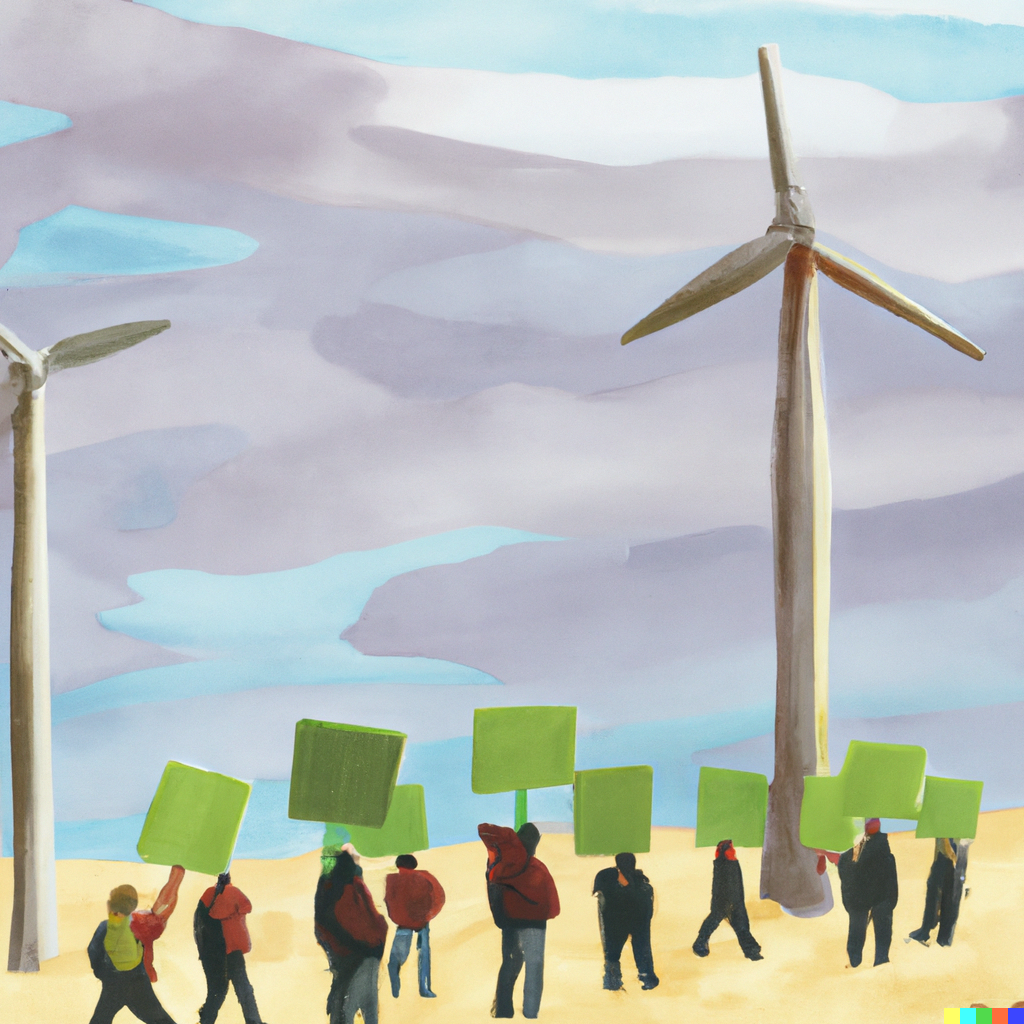Conspiracy beliefs are a major driver of local opposition to wind farms. The good news: Providing information in favor of wind farms can help overcome resistance. The bad news: It gets more difficult under realistic circumstances.
Views 5898
Reading time 3 min
published on Jun 12, 2023
Global climate goals require a massive increase in renewable energy sources. Wind energy plays a crucial role here, but wind projects often face resistance from the local population. Why do people oppose wind farms in their community and how can this resistance be overcome? As a team of psychologists, we set out to identify the characteristics that fuel opposition to wind farms in individuals. We anticipated that the belief in conspiracy theories would play a role, since conspiracy theories and misinformation about wind farms are spread on the internet and echoed by influential people. However, we were not so much interested in whether people believe in a certain conspiracy theory about wind farms. Instead, we focused on a more general worldview, the so-called conspiracy mentality.
Conspiracy mentality is a set of beliefs that are associated with distrusting those in power and rejecting majority positions in society. People who endorse this general way of thinking are more likely to believe in (any) conspiracy theories as opposed to official explanations for societal events. We knew from previous research that building wind farms is a trust-sensitive topic meaning that support is highest when the citizens trust the stakeholders. Given their high level of distrust in authorities, we predicted that people with a stronger conspiracy mentality would be more likely to oppose the construction of wind farms in their community. In a recent set of studies published in Nature Energy, we found out that this was indeed the case.
We let participants imagine that their municipality planned the construction of a wind farm and that there was a referendum to decide on the realization of the project. In the absence of any more detailed information on the project, participants with a stronger conspiracy mentality were less likely to vote in favor of building the wind farm. Strikingly, the influence of conspiracy mentality outnumbered other characteristics like gender, age, education, and even political orientation by far. Even more worrying, however, was the influence of specific conspiracy beliefs: participants who thought that there were secret arrangements between local government and industry opposed the wind farm to an even stronger degree. These findings led us to examine the possibilities of overcoming resistance among those holding strong conspiracy beliefs.
Our idea was simple and straightforward: we tested whether providing information in favor of the wind farm (e.g., capacity to save carbon emissions, possibilities of financial benefits to the population, security of energy supply) would be enough to convince even the most skeptical one’s to vote “yes” in the referendum. And as it turned out, this was indeed the case. Contrary to common sense, we found that information provision increased support for the wind farm even among those with a strong conspiracy mentality. This result shows that people with a general tendency to believe in conspiracy theories are not deaf to rational arguments. But expectedly, things were not as easy under more realistic conditions.
Referenda about wind farms are usually preceded by intense public campaigns of the involved parties. In most cases, this also includes wind farm opponents bringing up their arguments. Thus, we tested the impact of a more balanced set of information on people’s voting intentions. The presence of counterarguments greatly reduced the effect of pro-wind farm arguments. Even more sobering was the insight that the chances of communication drastically decreased when people already believed in a conspiracy theory (i.e., secret arrangements) about the referendum.
Taken together, our findings have important implications for the realization of wind farm projects and the public communication in this context. First, people (and even those with a tendency to believe in conspiracy theories) consider facts about wind farms in their judgements. Accordingly, these facts should be provided as early as possible to refute much of the misinformation that is used strategically by some wind farm opponents. Second, stakeholders (i.e., politics and industry) should be transparent about the project from the start and allow citizens to participate in the process. In this way, conspiracy theories could be deprived of their breeding ground.
Conspiracy beliefs pose a serious challenge to the heavily needed extension of wind energy. However, communicating the benefits of wind farms convinces even strong opponents – if it is done in a timely and credible manner.
Original Article:
Winter, K., Hornsey, M. J., Pummerer, L., & Sassenberg, K. (2022). Anticipating and defusing the role of conspiracy beliefs in shaping opposition to wind farms. Nature Energy, 7(12). https://doi.org/10.1038/s41560-022-01164-w
 Psychology
Psychology



